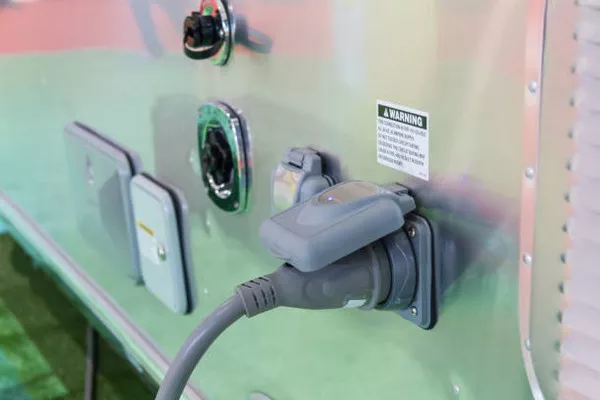Petrol generators are versatile power sources that provide electricity in various situations, from emergency backup during blackouts to powering outdoor events and construction sites. When it comes to selecting the best petrol generator for your specific requirements, there are several factors to consider. This article aims to guide you through the process of choosing the most suitable petrol generator by evaluating key features, performance metrics, and practical considerations.
Power Output
The first and foremost consideration when choosing a petrol generator is the power output it can deliver. The power output of generators is measured in watts (W) or kilowatts (kW). To determine the right generator size for your needs, calculate the total wattage of the appliances or equipment you plan to power simultaneously. It’s essential to choose a generator that can handle your peak power demand while still leaving some room for future needs.
For most residential applications, a generator with a power output ranging from 3kW to 8kW is sufficient to cover essential appliances such as refrigerators, lights, and HVAC systems during power outages. On the other hand, industrial and construction sites may require generators with much higher power outputs, often exceeding 10kW or even 20kW.
Fuel Efficiency
Fuel efficiency is another crucial factor to consider when selecting a petrol generator. Fuel efficiency is typically measured in gallons or liters of fuel consumed per hour (gph or lph) and is often referred to as the generator’s “fuel consumption rate.” Choosing a generator with high fuel efficiency can lead to significant cost savings in the long run, especially if you plan to use it frequently or for extended periods.
Modern petrol generators often come equipped with advanced features such as automatic idle control, which reduces fuel consumption when the generator is operating at less than full load. Additionally, generators with inverter technology tend to be more fuel-efficient as they can adjust the engine speed to match the load, reducing unnecessary fuel consumption during light usage.
Noise Level
Noise level is a critical consideration, especially if you plan to use your petrol generator in residential areas or for recreational purposes. Generators can produce a significant amount of noise, which can be disruptive to your surroundings. When evaluating generators for noise, look for the decibel (dB) rating, which indicates the level of noise produced.
Inverter generators are known for their quiet operation due to their advanced technology, which allows them to adjust engine speed based on the load. They typically produce noise levels in the range of 50-65 dB, which is comparable to normal conversation. Conventional open-frame generators, on the other hand, can be much louder, often exceeding 70 dB.
Portability and Size
The portability and size of a petrol generator can greatly affect its usability. If you need a generator for on-the-go power, such as for camping or outdoor events, you’ll want a compact and lightweight option that is easy to transport. In contrast, if you plan to use the generator as a backup power source for your home or business, a larger and more substantial model may be suitable.
Consider the physical dimensions and weight of the generator, as well as the presence of wheels and handles for easy maneuverability. Portable generators are typically more compact and come with built-in handles, making them easier to transport.
Run Time and Fuel Tank Capacity
The run time of a petrol generator is the duration it can operate continuously on a full tank of fuel. It’s an essential factor to consider, especially during extended power outages or outdoor activities where refueling may not be convenient. Generators with larger fuel tank capacities tend to have longer run times, but this also increases their overall size and weight.
To calculate the expected run time, divide the generator’s fuel tank capacity by its fuel consumption rate (usually given in gph or lph). Keep in mind that run times can vary based on the load, so check for manufacturer-provided information on run time at various load levels.
Brand Reputation and Warranty
When investing in a petrol generator, it’s wise to consider the reputation of the manufacturer and the warranty provided. Established and reputable brands often offer better customer support, quality control, and reliable products. Read customer reviews and seek recommendations from trusted sources to gauge the reputation of a specific brand or model.
Additionally, pay close attention to the warranty coverage. A longer warranty period indicates the manufacturer’s confidence in the product’s durability and performance. It can also provide peace of mind in case of any unexpected issues or defects.
Additional Features and Safety
Modern petrol generators come with a range of additional features
that can enhance usability and safety. These features may include:
- Electric start: A convenient feature that eliminates the need for manual pull-starting.
- Low-oil shutoff: Automatically shuts down the generator when the oil level is too low, preventing engine damage.
- Fuel gauge: Allows you to monitor fuel levels easily.
- GFCI outlets: Provides protection against electrical shocks, making it safer for outdoor use.
- Voltage regulation: Ensures stable and clean power output for sensitive electronics.
Consider which of these features are essential for your specific needs and budget.
Conclusion
Choosing the best petrol generator requires careful consideration of power output, fuel efficiency, noise level, portability, run time, brand reputation, and additional features. It’s essential to match the generator’s capabilities to your specific requirements, whether it’s for emergency backup power, outdoor adventures, or construction projects. By taking these factors into account, you can make an informed decision and ensure that your petrol generator meets your needs effectively and efficiently.

